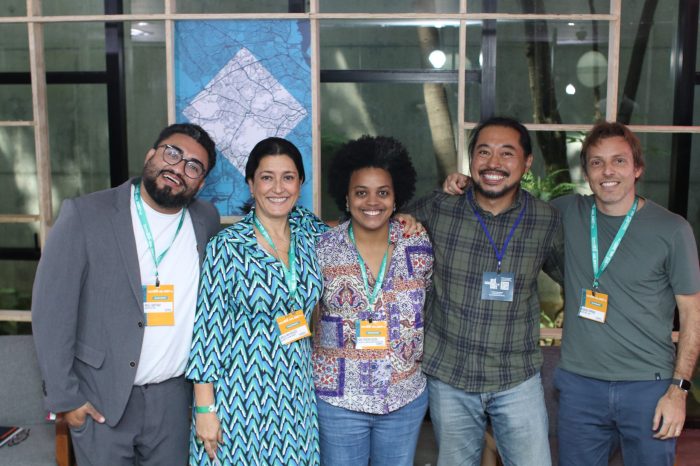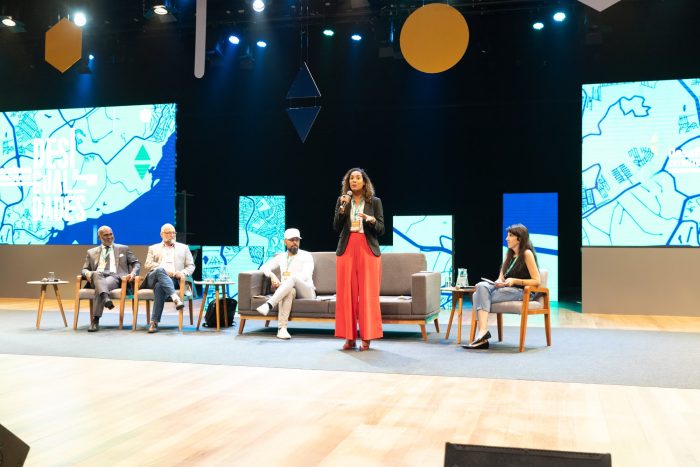Last week, I had the pleasure of participating in the 12th GIFE Congress , held in São Paulo (SP). It was three intense days of meetings, reunions and a lot of listening, especially in uncomfortable but necessary conversations.
I returned to Rio, on Friday night, with my head buzzing and I spent the weekend digesting everything I had experienced. As a good journalist, the best way I found to organize my ideas was by writing – and I share some impressions here.

Racial equity at the center
The theme of the congress was “Challenging Structures of Inequality” and there is no way to talk about inequality without including racial equity. If there were any doubts about this, the participants' speeches throughout the program soon resolved them.
The agenda was present in all the panels I attended, from the participation of writer and activist Edgar Villanueva, at the opening, to the closing, with the beautiful speeches by Thuane Nascimento (Perifa Connection) and Txai Suruí (Indigenous Youth of Rondônia).
And speaking of Rondônia, I highlight the screening of the documentary “O Território” , which immersed us in the tireless struggle of the indigenous people of Uru-weu-wau-wau against the invasions and destruction of their territory, in the southwest of that state.
Those who also stood out at the event were the Pipa Initiative , which is even the newest organization to join the MBM network! The launch of the study “Peripheries and Philanthropy” was perfectly synchronized with the event and there was no shortage of people mentioning the research at tables and in conversation circles during breaks.
Donation and inequalities
In the panel “When does grantmaking contribute (or not) to overcoming inequalities?” , I was able to hear Raull Santiago, founder of Pipa, talk more about the study and participate in a challenging conversation with our executive director, Carola Matarazzo, Rodrigo Pipponzi ( Grupo MOL and Instituto ACP ), Daiane Pereira Sousa ( Instituto Baixada ) and Fábio Tran ( Imaginable Futures ).

The packed room was a sign of the public's interest in the topic. And the 4 participants discussed points such as decentralization of resources, transparency of power and protagonism, creation of spaces for active listening and whether the philanthropic sector is prepared for racial equity.
Dating
The lobby of the Memorial da América Latina, where the congress was held, was a space for many meetings and reunions. It was the first social event that I participated in after the pandemic and it was great to be in an environment so conducive to exchanges. There were conversations being caught up, opportunities for partnerships being created and new people connecting.
I left São Paulo with some themes spinning in my head, such as the decolonization of philanthropy by the aforementioned Edgar Villanueva, the affection of Minister Anielle Franco's speech on structural racism and the commitment of philanthropy to confronting social inequalities discussed in the panel “Possibilities for a Brazil without hunger and poverty.”

Uncomfortability and the desire to act are the two feelings that I experienced at the congress and that now remain with me, still shaken by everything I heard, but more sure of what needs to be done from now on when we face the country's social challenges.
Diane Pereira Sousa highlighted in one of her speeches, “it is comfortable to talk about reducing inequalities if you do not live in a situation of social vulnerability. The right term must be 'end inequalities'. It may sound bold, but we need to be bold.”







